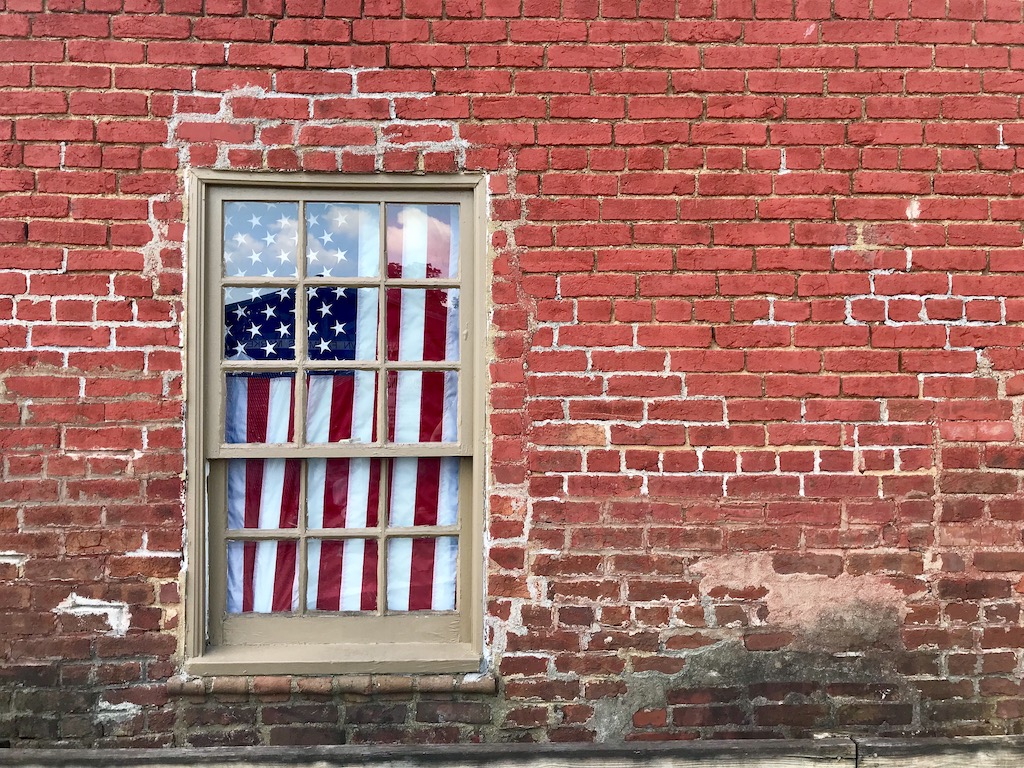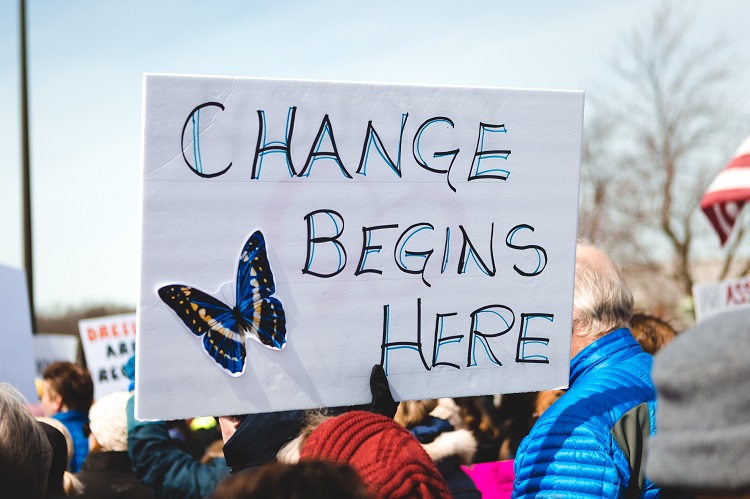In its prophetic and unsettling portrayal of a future “utopia” (or more fittingly, “dystopia”), Aldous Huxley’s “Brave New World” conveys a fundamental societal choice. We can pursue either truth and beauty or happiness and comfort. Huxley forces his reader to ask: Which option will your own society choose? And more importantly, which is your society choosing now?
 In Huxley’s novel, a “civilized” society chooses to pursue comfort and happiness at all costs, which includes the willing sacrifice of truth and beauty. In this new world, babies are created in test tubes, as cogs in the machine of society. Each individual’s development is manipulated, producing predetermined classes of people; some are intelligent and strong, others weak and mindless. All of this is done for the sake of a stable society, where people are perfectly “fitted” to fill each needed job. And in order to make sure each class of people is happy with their lives, every child is extensively conditioned—brainwashed, really—so as to prefer their own situation to the alternatives. As a result, society functions smoothly and people are generally “happy,” and if not, they can take soma (a hallucinogenic drug) to ensure they are content.
While reading I could hardly stop myself from getting chills, imagining a place so apparently happy, but actually fake, ugly and despicable. Huxley masterfully exposes the baseness of simple, physical pleasures, while pointing out the immense dangers caused by their deification.
It is no coincidence that central efforts at “ensuring” happiness and comfort are correlated with bondage and slavery. And freedom—even when accompanied by pain and suffering—is far more fulfilling and satisfying than manipulated, false happiness and comfort. Ultimately, freedom is real. It aligns with the nature of things: We are created as independent, social beings. Only in a condition of freedom are we provided the possibilities of finding truth and witnessing beauty— the things that make life worthwhile.
The protagonist of Huxley’s novel is a “Savage” raised in an “uncivilized” community of Native Americans, who is exposed to this new world. His conversation with Mustapha Mond, the “Resident World Controller,” emphatically makes this fundamental point:
In Huxley’s novel, a “civilized” society chooses to pursue comfort and happiness at all costs, which includes the willing sacrifice of truth and beauty. In this new world, babies are created in test tubes, as cogs in the machine of society. Each individual’s development is manipulated, producing predetermined classes of people; some are intelligent and strong, others weak and mindless. All of this is done for the sake of a stable society, where people are perfectly “fitted” to fill each needed job. And in order to make sure each class of people is happy with their lives, every child is extensively conditioned—brainwashed, really—so as to prefer their own situation to the alternatives. As a result, society functions smoothly and people are generally “happy,” and if not, they can take soma (a hallucinogenic drug) to ensure they are content.
While reading I could hardly stop myself from getting chills, imagining a place so apparently happy, but actually fake, ugly and despicable. Huxley masterfully exposes the baseness of simple, physical pleasures, while pointing out the immense dangers caused by their deification.
It is no coincidence that central efforts at “ensuring” happiness and comfort are correlated with bondage and slavery. And freedom—even when accompanied by pain and suffering—is far more fulfilling and satisfying than manipulated, false happiness and comfort. Ultimately, freedom is real. It aligns with the nature of things: We are created as independent, social beings. Only in a condition of freedom are we provided the possibilities of finding truth and witnessing beauty— the things that make life worthwhile.
The protagonist of Huxley’s novel is a “Savage” raised in an “uncivilized” community of Native Americans, who is exposed to this new world. His conversation with Mustapha Mond, the “Resident World Controller,” emphatically makes this fundamental point:
 In Huxley’s novel, a “civilized” society chooses to pursue comfort and happiness at all costs, which includes the willing sacrifice of truth and beauty. In this new world, babies are created in test tubes, as cogs in the machine of society. Each individual’s development is manipulated, producing predetermined classes of people; some are intelligent and strong, others weak and mindless. All of this is done for the sake of a stable society, where people are perfectly “fitted” to fill each needed job. And in order to make sure each class of people is happy with their lives, every child is extensively conditioned—brainwashed, really—so as to prefer their own situation to the alternatives. As a result, society functions smoothly and people are generally “happy,” and if not, they can take soma (a hallucinogenic drug) to ensure they are content.
While reading I could hardly stop myself from getting chills, imagining a place so apparently happy, but actually fake, ugly and despicable. Huxley masterfully exposes the baseness of simple, physical pleasures, while pointing out the immense dangers caused by their deification.
It is no coincidence that central efforts at “ensuring” happiness and comfort are correlated with bondage and slavery. And freedom—even when accompanied by pain and suffering—is far more fulfilling and satisfying than manipulated, false happiness and comfort. Ultimately, freedom is real. It aligns with the nature of things: We are created as independent, social beings. Only in a condition of freedom are we provided the possibilities of finding truth and witnessing beauty— the things that make life worthwhile.
The protagonist of Huxley’s novel is a “Savage” raised in an “uncivilized” community of Native Americans, who is exposed to this new world. His conversation with Mustapha Mond, the “Resident World Controller,” emphatically makes this fundamental point:
In Huxley’s novel, a “civilized” society chooses to pursue comfort and happiness at all costs, which includes the willing sacrifice of truth and beauty. In this new world, babies are created in test tubes, as cogs in the machine of society. Each individual’s development is manipulated, producing predetermined classes of people; some are intelligent and strong, others weak and mindless. All of this is done for the sake of a stable society, where people are perfectly “fitted” to fill each needed job. And in order to make sure each class of people is happy with their lives, every child is extensively conditioned—brainwashed, really—so as to prefer their own situation to the alternatives. As a result, society functions smoothly and people are generally “happy,” and if not, they can take soma (a hallucinogenic drug) to ensure they are content.
While reading I could hardly stop myself from getting chills, imagining a place so apparently happy, but actually fake, ugly and despicable. Huxley masterfully exposes the baseness of simple, physical pleasures, while pointing out the immense dangers caused by their deification.
It is no coincidence that central efforts at “ensuring” happiness and comfort are correlated with bondage and slavery. And freedom—even when accompanied by pain and suffering—is far more fulfilling and satisfying than manipulated, false happiness and comfort. Ultimately, freedom is real. It aligns with the nature of things: We are created as independent, social beings. Only in a condition of freedom are we provided the possibilities of finding truth and witnessing beauty— the things that make life worthwhile.
The protagonist of Huxley’s novel is a “Savage” raised in an “uncivilized” community of Native Americans, who is exposed to this new world. His conversation with Mustapha Mond, the “Resident World Controller,” emphatically makes this fundamental point:
“But I don’t want comfort. I want God, I want poetry, I want real danger, I want freedom, I want goodness. I want sin.” “In fact,” said Mustapha Mond, “you’re claiming the right to be unhappy.” “All right then,” said the Savage defiantly, “I’m claiming the right to be unhappy.” “Not to mention the right to grow old and ugly and impotent; the right to have syphilis and cancer; the right to have too little to eat; the right to be lousy; the right to live in constant apprehension of what may happen tomorrow; the right to catch typhoid; the right to be tortured by unspeakable pains of every kind.” There was a long silence. “I claim them all,” said the Savage at last.True life is difficult and painful at times, but at least it is true! A welfare state that cares for people from the cradle to the grave may be well-intended, but is a dangerous step toward Huxley’s brave new world. Allowing power to be centralized, and freedom to be sacrificed for the sake of “ensuring” happiness and comfort is a mistake—and one many in Washington are far too ready to make. In the end, the Savage preferred to take his own life than live in a world absent of truth, beauty and freedom. What he desired was a real life. He desired freedom to choose good or ill; freedom to love; even freedom to suffer. And he had no chance of getting it. Fortunately, this present world is still full of true and beautiful things. But we should share in the Savage’s sentiment nonetheless, by refusing to become slaves to infantile desires, clinging to freedom instead. Because again, it is only in a condition of human liberty that we can enjoy the things that make life on this earth truly worthwhile.


